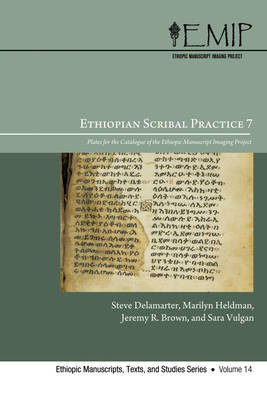
- Afhalen na 1 uur in een winkel met voorraad
- Gratis thuislevering in België vanaf € 30
- Ruim aanbod met 7 miljoen producten
- Afhalen na 1 uur in een winkel met voorraad
- Gratis thuislevering in België vanaf € 30
- Ruim aanbod met 7 miljoen producten
Zoeken
€ 96,45
+ 192 punten
Uitvoering
Omschrijving
There are many stories to tell about the Ethiopic manuscripts in the collection of the Mekane Yesus Seminary in Addis Ababa. The stories about the content of the manuscripts are told in the catalogue (EMTS volume 13). But this volume recounts stories about the book culture that produced the manuscripts. One study provides a general introduction to Ethiopian Christian codicology and the scribal practices in evidence in the collection. Another focuses on the particular story of scribal errors and corrections. And a final study provides an art-historical account of all of the illuminations contained in the collection--even down to the crude drawings in pencil that adorn some pages. Books contain texts. But they are witnesses, first and foremost, to a particular people, at a particular place, at a particular moment in time, who had a particular way of making and using their books. The content of their books tells us about the community's past, about the authoritative texts from antiquity which they valued. But their book culture tells us about their present, about the history of the reception of those works among these people in order to articulate in the present their identity and ethos.
Specificaties
Betrokkenen
- Auteur(s):
- Uitgeverij:
Inhoud
- Aantal bladzijden:
- 180
- Taal:
- Engels
- Reeks:
- Reeksnummer:
- nr. 14
Eigenschappen
- Productcode (EAN):
- 9781610977067
- Verschijningsdatum:
- 17/11/2014
- Uitvoering:
- Paperback
- Formaat:
- Trade paperback (VS)
- Afmetingen:
- 163 mm x 239 mm
- Gewicht:
- 340 g

Alleen bij Standaard Boekhandel
+ 192 punten op je klantenkaart van Standaard Boekhandel
Beoordelingen
We publiceren alleen reviews die voldoen aan de voorwaarden voor reviews. Bekijk onze voorwaarden voor reviews.







